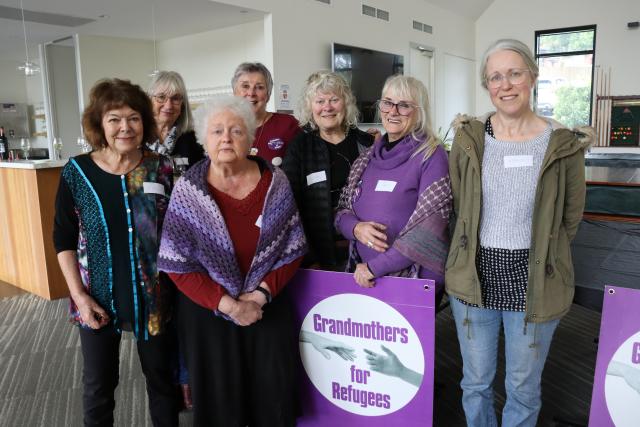
By Mikayla van Loon
Casey Grandmother’s for Refugees hosted a special film screening event to discuss the plight of refugees stuck in Indonesia without support or anywhere to go after Australia’s ‘stop the boats’ campaign.
Viewing the one-hour long documentary ‘The Staging Post’ at Lilydale’s Tudor Village as well as hearing from Belgrave resident and Refugee Action Collective (RAC) member Margaret Sinclair, who recently travelled to Indonesia, the group was given an insightful look at the real time impact of Australia’s border policy on Thursday 26 October.
With 14,000 refugees living in limbo in the southeast Asian country, Ms Sinclair said they have gone from “a dangerous situation to a situation where they are still persecuted”.
“Half of them are Hazara and the others are Shia, while Indonesia is Sunni, so they can’t freely practise their religion,” she said.
The thousands of people represent countries like Afghanistan, Iraq, Sudan, Somalia, Pakistan and Iran, many of the same “nationalities on Manus and Nauru”.
Ms Sinclair said there are people who have been waiting in Indonesia since Australia’s ban on boat arrivals in 2014.
“Nobody’s ever lifted that ban and you have people who have waited so long they’ve had family members join them,” she said.
“So you might have half a family who’s arrived before that ban and the other half that has arrived after that ban and how do they find resettlement?
“14,000 people is just a drop in the ocean compared to the whole global refugee situation and most other countries would look at the geographical area and say, ‘well, Australia, that’s your catchment zone. You’re a signatory to the Refugee Convention, Indonesia isn’t’, but we just haven’t quite stepped up yet.”
Indonesia doesn’t allow refugees to work, study, gain qualifications, to get a drivers licence, open a bank account or register for a SIM card.
“The financial situation is really dire. So the International Organisation for Migration, is 100 per cent funded by the Australian Government in Indonesia, and they give money to the refugees each month for living expenses but it hasn’t increased in 10 to 12 years,” Ms Sinclair said.
“You have people who had arrived as children, they’ve got the child level of money, say $50 a month but after they become adults, it doesn’t change. They’re still on a child rate, even though their needs are as an adult for food and clothes.”
Attending events like the Grandmother’s one, was for Ms Sinclair part of the promise she made when she went to Indonesia, to come back and share the stories of these people.
“We’ve just got to keep at it, even though it feels like it’s impossible. It’s impossible for those who are stuck in Indonesia, but also for people who want to try and make a difference.
“It feels impossible for us too because we can see the political situation here and that hasn’t changed.”
The Staging Post follows Muzafar and Khadim, two Hazara refugees, left waiting in Indonesia. It shows the living conditions and the school they built for refugee children.
Casey Grandmother’s used the event to help raise funds for the Brigidine Asylum Seekers Project as part of their ongoing work to support, advocate and deliver better outcomes for refugees both in Australia and overseas.







